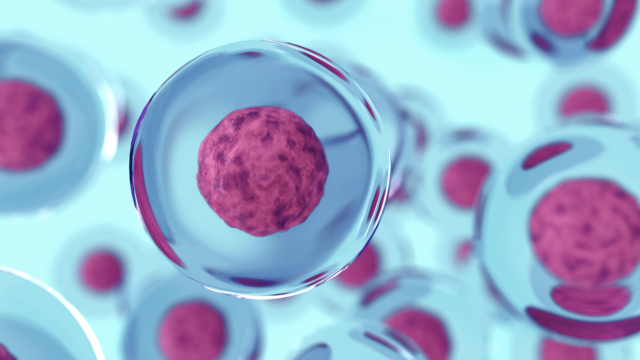FTC disclaimer: This post may contains affiliate links and we will be compensated if you click on a link and make a purchase.
Are you suffering from an Omega 3 deficiency?
Omega-3 fatty acids can lead to various health issues such as arthritis, depression, and cardiovascular disorders.
Moreover, omega fatty acids are vital in brain development, cellular level communication, and overall neuro system health.
Further, it helps in reducing inflammation, creating new neurons in the brain, preventing heart diseases, and many more. It has also been found that fish oil and calcium intake results in higher bone density and fewer fractures.
Do most people get enough Omega-3 fatty acids?
A recent study has revealed that Omega-3 deficiency causes nearly 96,000 US deaths every year.
Further, another study has stated that 98% of children and 68% of adults are deficient in Omega-3 fatty acids.
Hence, fish oil rich in omega-3 is highly recommended by health experts.
How long does it take to correct Omega-3 deficiency?
It may take more than six weeks and up to 6 months to correct Omega-3 deficiency such as mood, pain, and other symptoms.
To understand the importance of Omega-3 essential fatty acids in the body, you must first understand what these healthy fats do.
How Omega-3 essential fatty acids work
The human body cannot manufacture Omega-3 and Omega-6 essential fatty acids naturally; therefore, to maintain proper body function, one must supplement their diet in Omega fatty acids-rich foods.
Although all fatty acids are important, Omega-3 essential fatty acids are the most important.
Omega-3, linolenic acids, are essential in protecting the heart, cardiovascular functions, disposal of lipid wastes, and intracellular communication.
Omega-3 has also been found to be important in the prevention of many health issues such as:
- Psoriasis
- Migraine
- Headaches
- Premenstrual syndrome
- Lupus
- Cancers.
At the cellular level, once consumed, Omega-3 fatty acids trigger a cascade of chemical reactions to transform the food consumed into a useable form of essential fatty acids.
Omega-3 fatty acids create three important hormone-like compounds:
- Alpha-linolenic (ANA)
- Eicosapentaenoic (EPA)
- Docosahexaenoic (DHA)
These three compounds are pivotal in various chemical cascades in essential bodily functions.
The formation of cellular membranes is primarily composed of fat.
The fluidity and integrity of cells are vital in all body functions. Consumption of “bad” fats such as saturated or trans fats interferes with the proper formation of cellular membranes, leaving the membranes hard and unable to maintain vital nutrients.
Omega-3 essential fatty acids increase the suppleness of cellular membranes leaving the cells fluid and the ability to “hold on” to their nutrients.
Signs and Symptoms of Omega-3 Deficiency
Although it is important to consume all Omega essential fatty acids, it is equally important to maintain a healthy balance of healthy fats.
The majority of individuals tend to consume 25 times more Omega-6 fatty acids than what is needed by the body, leading to an Omega-3 essential fatty acid deficiency.
Due to so many variables that can cause serious health conditions such as cardiovascular disorders, it is difficult to know if one is deficient in Omega-3 fatty acids.
The same symptoms that may be symptoms for other health issues can be the same symptoms that would indicate Omega-3 deficiency.
Only a medical test provided by your healthcare provider can diagnose a deficiency.
Contact your doctor and ask for a deficiency test if you have the following known Omega-3 deficiency symptoms.
Signs of Omega-3 deficiency
Early warning signs of an Omega 3 deficiency include:
- Frequent cravings for processed foods
- Irritability
- Sensitivity to sunlight
- Dry skin
- Excessive sensitivity to allergies
- Dryness of skin, eyes, and hair
- Dry, brittle nails
- Fatigue
Symptoms of Omega-3 Deficiency
If you are Omega-3 deficient, you might experience some or all of the following symptoms.
The most common symptoms are:
- Inflamed joints or joint pain
- Extreme fatigue
- Unexplained depression and mood swings
- Brittle nails and hair
- Contracts colds frequently
- Diminished mental retention or difficulty concentrating
- Unexplained dry or itchy skin
- Diminished physical endurance
- Reproductive problems
- Diabetes
- Weight gain
In extreme cases, someone who is Omega 3 deficient can have elevated risks for cancer, heart disease, and even dyslexia.
Let’s look into some of the health conditions that get affected due to Omega-3 deficiency.
Effects and Causes of Omega-3 Deficiency
Omega-3 Deficiency can cause Hair Loss, Dull and Brittle Hair.
Fish oil is a rich source of Omega 3 fatty acids, good for healthy hair.
Often when the body is starved of essential nutrients like Omega 3 acids, the hair quality deteriorates, leading to dull and unhealthy hair.
Studies indicate that due to the deficiency of Omega-3 fatty acids in the body, one may suffer hair loss. In this case, experts often recommend fish oil supplements because of their hair-growing properties.
A fatty acid imbalance too can cause dull and unhealthy hair. According to studies, supplements rich in Omega-3 acids can nourish hair by feeding the hair follicles, stimulating growth and shine.
Omega-3 Deficiency can cause Mood Swings.
Did you know Omega-3 fish oil is a mood stabilizer?
Serotonin is a neurotransmitter (a chemical messenger in the brain) that affects one’s moods, including depression and anxiety. Studies show that long-chain Omega 3s play a vital part in the brain’s serotonin reuptake.
One of the recent research studies revealed that the number of people affected by depression has increased because of the low amount of Omega-3 fatty acids.
Another eye-opening study revealed that consuming more fish can help reduce mood swings or depression.
The brain, too, contains and needs more nutrient fats such as Omega-3 containing DHA and EPA to help maintain more stable behavior.
But the body fails to produce the essential nutrients itself. The traces of these fats start depleting as one grows older.
Hence, one needs to consume them from external sources to replenish the loss. The loss is compensated with the intake of fish oil, and the brain is revitalized.
There are several causes for mood swings, and they can happen to anyone, irrespective of their age.
Mood swings could be just one problem affecting the young and old individuals, but they can lead to more severe problems like;
- Bipolar disorder
- Depression
- Schizophrenia and more.
Hence, the best solution is to control the problem at its very start by using Omega-3 fish oil as a mood stabilizer.
Omega-3 Deficiency leads to Depression.
Scientists for several years have known the link between fish oil and depression.
Many studies from all over the world have proven the amazing benefits of getting more omega-3 fatty acids into your body.
Research has also found that those deficient in omega-3 fatty acids are at a greater risk of depression, suicide, and other similar mental ailments.
Clinical studies have shown that omega-3 fatty acid supplements can sometimes be as effective as traditional anti-depressant drugs.
Some studies have shown that fish oil supplements are more effective than conventional drugs, without the side effects and high cost.
However, one study even showed that children who were depressed showed dramatic signs of relief in just four weeks of getting more omega-3 fatty acids into their system.
Omega-3 deficiency cause Aging Skin
A study published in the Journal of Lipid Research professed that omega-3 EPA in fish oil could guard against wrinkles and sagging skin.
The researchers pointed out that fish oil had great potential in preventing and treating skin aging.
As far as wrinkles are concerned, research studies were conducted on applying omega-3 fatty acids to human skin cells.
The fibroblasts (type of cell in connective tissue) were then subjected to UV radiation to simulate the actual effects of facing the sun and wrinkling with age.
It was observed that the cells which were applied omega-3 fatty acids (possessed by fish oil) were less prone to damage.
Further, the skin damage would have resulted in wrinkles and sagging. Fish oil blocked some of the chemicals, which would have caused damage.
Omega-3 deficiency causes less concentration and focus.
The nervous system is the root cause of concentration problems. When the brain is not functioning well, the messages transmitted and received are not done so at the required speed.
Fish oil is beneficial in improving cognition. Fish oil contains fatty acids, which provide the necessary nutrients to the nervous system.
A study conducted on students has shown marked improvements in performance after three months of continuous fish oil supplements.
Further, they could concentrate better and pay more attention to their studies.
Fish oil improves concentration and develops a child’s brain inside a pregnant mother.
Children are not the only ones to benefit from fish oil supplements. Moreover, the studies have shown that it also improves the concentration of adults taking medication for this disease.
Fish oil can easily replace these medications with better effects. There are many ways to include fish oil in your diet, out of which taking supplements is the easiest way.
Fish oil is the most natural way of helping us to concentrate better.
Omega-3 Deficiency can lead to Chronic Fatigue.
Can eating more Omega-3 give your energy level a boost? According to researchers and scientists, low levels of Omega-3 fatty acids can lead to fatigue symptoms.
First, chronic fatigue isn’t the same as chronic fatigue syndrome. Chronic Fatigue Syndrome affects your energy level and neurological, immunological, and endocrine systems.
With Chronic Fatigue Syndrome, you’re tired without relief for more than six months, have muscle and joint pain, and have trouble concentrating and thinking.
Chronic fatigue isn’t a disease; it’s a symptom telling your body you need to make some changes.
Moreover, a study shows that Omega-3 fish oil supplementation has improved overall energy levels and alleviates fatigue symptoms.
However, it has further illustrated that eating too much of the wrong thing or too little of the right thing can cause chronic fatigue.
Additionally, researchers have discovered that Americans are getting too many bad fats and not enough good fats.
Omega-3 Deficiency Causes High Cholesterol
One way that Omega-3 essential fatty acids are beneficial in preventing high cholesterol.
According to research studies, omega-3 fatty acids aid in producing proteins that specialize in the transportation of excess lipids (cholesterol) to the liver for disposal.
In Omega-3 deficient individuals, the protein production required for lipid removal is seriously diminished, thus allowing for the buildup of excess lipids.
This leads to high LDL, bad cholesterol, and arteriosclerosis (hardening of the arteries).
Additionally, Omega-3 fatty acids may help in genetically caused high cholesterol, but you can also have positive effects with a doctor-approved regimen.
Omega-3 Deficiency Causes Heart Disease
Omega-3 fatty acids are also important in the prevention of heart disease.
According to research studies, Omega-3 fatty acids helps in preventing heart disease by reducing LDL cholesterol and triglycerides levels. Further, it added that it affects all other factors contributing to blood coagulation.
In addition to lowering cholesterol levels (triglycerides), Omega-3 fatty acids also help to regulate other functions that contribute to heart disease.
The chemical cascade that results in the production of EPA and DHA has been proven to play a vital role in body temperature regulation and blood pressure.
Both conditions, if left untreated, have been linked to irregular heartbeats and muscle damage.
Omega-3 Deficiency increases the Effects of Rheumatoid Arthritis
Rheumatoid Arthritis (RA) is a progressive and painful autoimmune disease characterized by severe joint inflammation.
Omega-3 essential fatty acids have been proven to carry anti-inflammatory properties.
Medical research has shown that those with a diet rich in Omega-3 fatty acids, particularly in cold-water fish, significantly reduced RA symptoms such as diminished morning joint stiffness and overall joint pain.
Patients also reported a decreased use of medications prescribed for RA.
It is important to note that although Omega-3 fatty acids decrease the symptoms of RA, it does not reverse or slow the progression of the disease.
Omega-3 Foods and Supplements in a right way
Do you get enough omega-3? For optimum health, you not only need to get the right amounts of omega-3, but you need to get it in the right way.
Getting your omega-3 the wrong way can put your health at risk.
Most Americans grew up with margarine, sunflower, corn, soy, safflower, and canola oil.
Instead of these hydrogenated or partially hydrogenated fats, switch to unsaturated fats like extra virgin olive oil, coconut oil, avocados, and organic butter.
Further, you can buy fish free of detectable levels of mercury and toxins or choose one of the recommended fish oil supplements.
For optimum health, change the type of meat you eat. Most meat at your local grocery store or eat at a restaurant is grain-fed, making the meat high in omega-6 and lower in omega-3.
Omega-6 and omega-3 are healthy, but only as long as you get them in the right ratio. The typical American diet is too high in omega-6 fatty acids, which come from a diet high in saturated fats, sugar, and processed foods.
When in doubt about getting the right nutrients and the correct amount of omega-3 in our diets, one of the first things to look for is Omega-3 supplements.
But, you need to keep in mind that most fish oil is contaminated with lead and other toxins.
It will help if you put a little extra effort into eating healthy and making changes in your food choices.
Gradually add these healthy foods and supplements into your diet to ensure you’re getting all the omega-3 you need in the right way.
How to get the right amount of Omega-3 fatty acids
Though you can get the required amount of nutrients directly from fish intake, it is not a very feasible option for everyone.
Hence, fish oil supplements are the better option. They ensure you get the supply of DHA and other essential nutrients at an exact level. This is why even health experts recommend fish oil supplements.
Moreover, to get the amount of essential fatty acids you need, you need to eat healthier foods.
Foods high in Omega-3 are:
- Wild-caught salmon
- Sardines
- Tuna
- Herring
- Perch
- Flounder
- Mackerel.
You can significantly improve your Omega-3 intake by eating one of these fish three times per week.
If you don’t care for fish, try taking a fish oil supplement or adding walnuts or flaxseed to your diet.
Just a 1/4 cup of walnuts per day gives you all the omega-3 you need.
How long does it take for omega-3 to start working?
If you start adding these healthy foods to your diet to increase your Omega-3, that’s great.
But if you think you can add these good fats to your diet and continue to eat the bad fats and see your energy level improve, you’re wrong.
It’s just as important that you cut the bad fats and food from your diet and add the good fats and foods.
Unless you cut the bad fats while adding the good fats, you won’t see any change in your energy level or health.
Decide today to make these changes in your diet. Start gradually cutting out one bad fat per day and adding one good fat per day.
If you do this, in time, as you increase your Omega-3, you’ll see your health improve and the return of your old energy level.
Conclusion
If you’re experiencing many of these symptoms and can’t figure out why then you might want to start thinking about eating more Omega 3 foods.
Why? Because prolonged deficiency has far more serious consequences.
If you are extremely worried about Omega 3 deficiency symptoms, you should speak to your doctor.
They will be able to help you figure out if there’s a different cause for some of your symptoms and recommend a good supplement.
Otherwise, you can help yourself by increasing your Omega 3 intake.
If you buy supplements, ensure that you buy Omega-3 fish oils, not Omega-6 or Omega-9. Beyond supplements, you should consume Omega-3 fatty acids foods.








